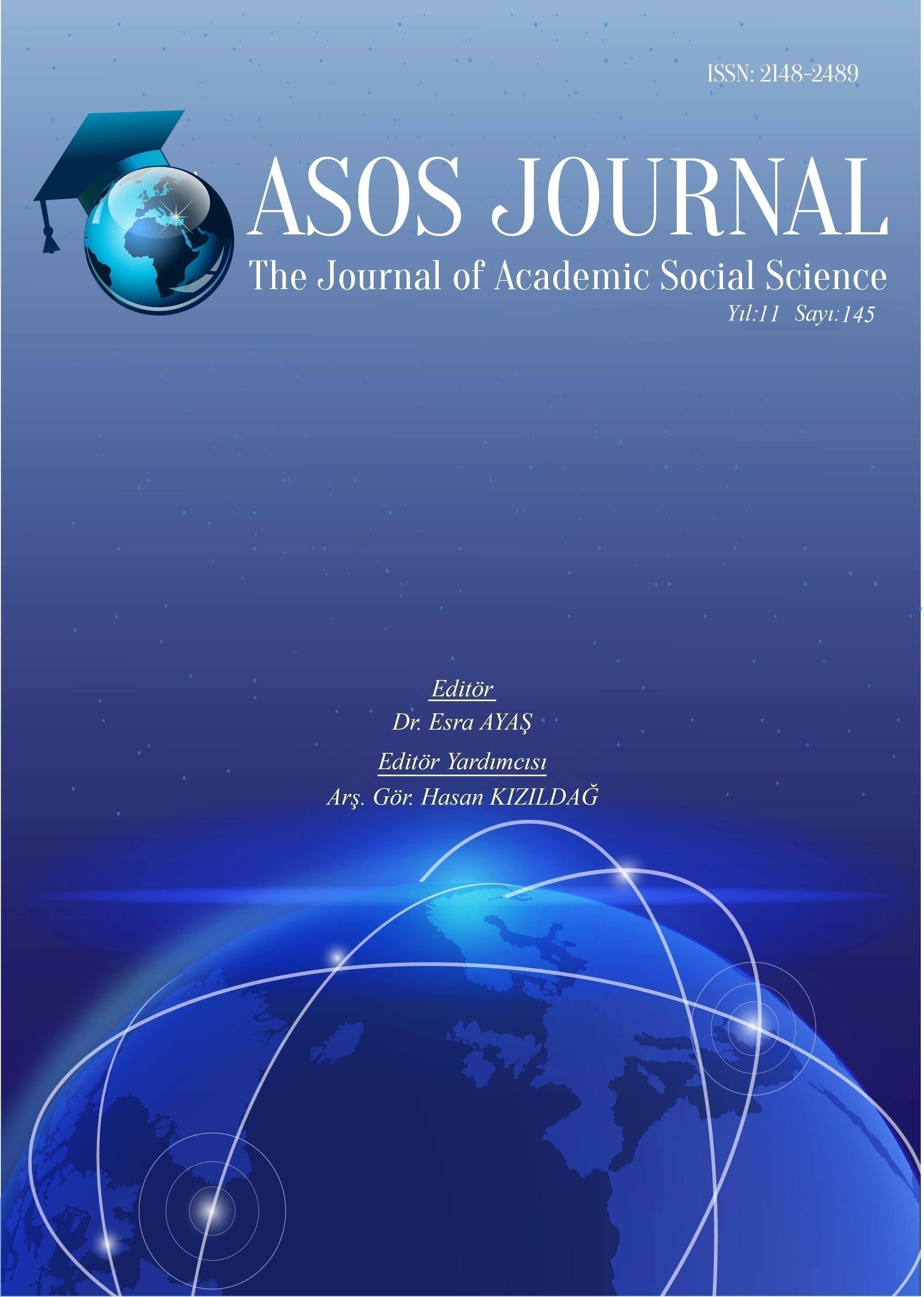Author :
Abstract
Türkiye’de ebeveynlerin çocuk yetiştirme stillerini sevgi, otorite, bağımsız olma, dindarlık, eş ile işbirliği, okulla işbirliği boyutları altında değerlendiren bir ölçek bulunmamaktadır. Ebeveynlerin, çocuk yetiştirme stillerine yönelik bir ölçeği alan yazına katmak, erken müdahale çalışmalarına ışık tutması açısından önemlidir. Bu araştırmanın amacı, Satow (2013) tarafından geliştirilen “Ebeveynlerin Çocuk Yetiştirme Stilleri Ölçeği” (Eltern-Erziehungsstil-Inventar (EEI))’in okul öncesi kurumlarında okuyan çocuklara sahip aileler için Türkçeye uyarlamasını yapmaktır. Araştırma nicel araştırma modellerinden betimsel tarama modelinde tasarlanmıştır. Çalışma grubunu Çanakkale İlinde okul öncesi eğitime devam eden çocuklara sahip 387 ebeveyn oluşturmaktadır. Satow (2013) tarafından geliştirilen 54 maddelik ölçek, ölçekteki maddelerin eşdeğerliğini belirlemek için her iki kültürde deneyime sahip uzmanlar tarafından Almancadan Türkçeye çevrilmiştir. Orijinal ölçekle eşdeğerliğini test etmek için geri çeviri yöntemi de kullanılmıştır. Ölçeğin nihai halinin kapsam geçerliğine sahip olup olmadığını ortaya koymak amacıyla 11 uzmandan görüş alınmıştır. Ölçekte bulunan 54 maddenin de KGO incelendiğinde hiçbir maddenin minumum değerin altında çıkmadığı görülmüştür. Araştırmada verilerin analizi sürecinde; ölçek uyarlama amacına yönelik olarak önce açımlayıcı faktör analizi (AFA) daha sonra ise doğrulayıcı faktör analizi (DFA) yapılmıştır. Analizler sonucunda orjinalinde bulunan bir madde modele uyum sağlamadığından dolayı ölçekten çıkarılmıştır ve 53 maddelik altı alt boyuttan oluşan, geçerliği ve güvenirliği test edilmiş “Ebeveynlerin Çocuk Yetiştirme Stiline Yönelik Ölçek” elde edilmiştir. Sevgi alt boyutunda 10 madde, otorite alt boyutunda 10 madde, bağımsız olma alt boyutunda 10 madde, dindarlık alt boyutunda 10 madde, eş ile işbirliği alt boyutunda 7 madde ve okulla işbirliği alt boyutunda 6 madde bulunmaktadır.
Keywords
Abstract
In Turkey, there is no such a scale specifically published on evaluating parents' child-rearing styles in terms of the dimensions of authority, love, independence, religiosity, cooperation with spouse, cooperation with school. Incorporating a scale of parents' child-rearing into the literature is very important in terms of early intervention studies. The aim of this study to adapt the “Scale for Parents' Child-rearing Style” (Eltern-Erziehungsstil-Inventar (EEI)) developed by Satow (2013) in German to analyze parents' child rearing styles in various dimensions into Turkish for families with children studying in pre-school institutions. This study employed the descriptive survey model, one of the quantitative research models. The working group consisted of 387 parents who have children attending pre-school education in Çanakkale. The 54-item scale developed by Satow (2013), has been translated into Turkish by German by experts having experience in both cultures to determine the equivalence of the items in the scale. The back-translation method was also used to test its equivalence with the original scale. 11 experts were consulted about whether the final version of the scale had content validity. On examining the content validity ratios (CVR) of 54 items in the scale, none of the items was below the minimum value. Exploratory factor analysis (EFA) and confirmatory factor analysis (CFA) were performed during data analysis. Analysis results suggested that an item in the original was excluded from the scale as it did not fit the model, and the "Scale for Parents' Child-Rearing Style", consisting of six sub-dimensions and 53 items, was tested for validity and reliability. There are 10 items in the sub-dimension of love, 10 items in authority, 10 items in independence, 10 items in religiosity, 7 items in cooperation with the spouse, and 6 items in cooperation with the school.





